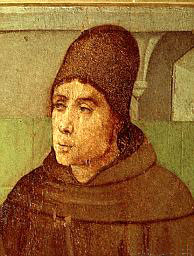Divine command theory
| Advanced search |
- About 5 results found and you can help!
Divine command theory is a meta-ethical theory which proposes that an action's status as morally good is equivalent to whether it is commanded by God. The theory asserts that what is moral is determined by what God commands, and that to be moral is to follow his commands. Followers of both monotheistic and polytheistic religions in ancient and modern times have often accepted the importance of God's commands in establishing morality. Numerous variants of the theory have been presented: historically, figures including Saint Augustine, Duns Scotus, and Thomas Aquinas have presented various versions of divine command theory; more recently, Robert Merrihew Adams has proposed a "modified divine command theory" based on the omnibenevolence of God in which morality is linked to human conceptions of right and wrong. Paul Copan has argued in favour of the theory from a Christian viewpoint, and Linda Zagzebski's divine motivation theory proposes that God's motivations, rather than commands, are the source of morality.
- See also: Wikipedia
- Related: Add a related term
| Divine Command Theory Divine Command Theory www.iep.utm.edu/d/divine-c.htm - Web |
| God and Morality God and Morality docs.google.com/Doc?id=ah8t5xh9wmbx_123cwc35m - Web |
| Moral Argument and Divine Command Theory Moral Argument and Divine Command Theory www.infidels.org/library/modern/theism/moral.html - Web |
Gallery for «Divine command theory»
Average relevance
| Morality & Religion I Morality & Religion I users.ox.ac.uk/~shil0124/dialogues/morality-I.pdf - Web |
| Theological Voluntarism Theological Voluntarism plato.stanford.edu/entries/voluntarism-theological/ - Web |


